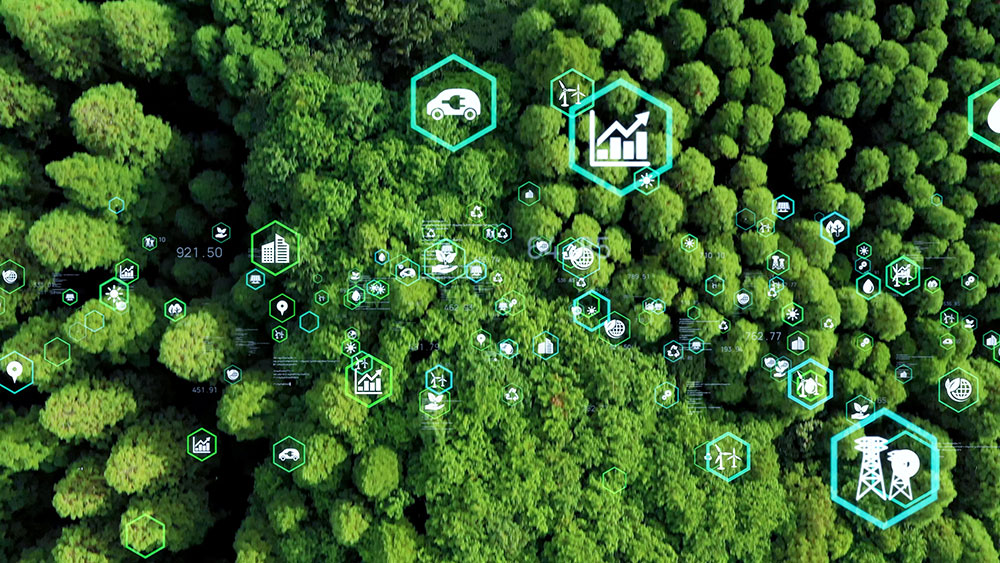Accountants might not be the most obvious choice of people to lead a green revolution, but we all have a role to play, and you might have more influence than you think.
Sustainable skills
Finance professionals have skills in numeracy, measuring and analysing performance, assessment of risk and presenting business case propositions to add economic value. These give you the capabilities and opportunities to deliver the changes in corporate and personal behaviours, if you use your influence well.
Accountants generally hold positions of trust and power, and should be making more of that by demonstrating that financial and environmental returns are not mutually exclusive. You should also be prepared to have tough conversations about what ‘value’ means and work with colleagues from other disciplines to develop metrics that work across everything, while not compromising on financial reporting. Accountants need to become system thinkers and see the whole big picture by analysing non-financial information.
The green business case
Incentives could encourage senior management to pursue non-financial goals as well as financial goals, reflecting the long-term consequences of an organisation’s actions. Employees may need encouragement to promote their own ideas and aspirations for promoting sustainability, but these could be written into employees’ annual objectives, and used to cross collaborate across business areas.
Supply chain management is also key: can you identify multiple value streams within your organisation and supply chain, eg, less packaging saves resources, reduces transport and minimises your customer’s waste?
Regardless of which industry/sector or place we are operating in, each and every one of us has a responsibility for carbon reduction and saving our planet. This can be done in various ways:
- Transitioning the use of existing fossil fuels infrastructure / re-purposing the built environment
- Circular economy (eg, re-use of oil in plastic to make road surfaces)
- Green electricity
Personal vs corporate values
There’s a school of thought that says how we behave in our corporate lives should align with our personal behaviours, those behaviours we hope our friends, our family, and children recognise in each of us. This notion seems to be becoming more prevalent as professionals tend to seek out organisations with similar belief systems to their own to work in, rather than taking a job anywhere.
As chartered accountants we have access and influence in organisations greater than almost every other role. We can have legitimate, detailed conversations about what all areas of our organisation are doing and we can challenge.
Influence doesn’t only need to be in the areas of corporate policy. We should also consider how we seek to track performance which in turn links to how people across the organisation are incentivised. Financial management digs deeply into the underlying performance of our organisations; the same skills and disciplines can be used to track delivery against other critical corporate objectives. Given the frequently demonstrated link between shareholder value and delivery of both financial performance and demonstrable sustainability metrics, it is easy to rationalise why short term and longer-term incentive schemes should also be aligned to the delivery of stretch targets based upon the sustainable development goals.
The insight that we can offer to management across the organisation influences important decisions. We should not, therefore, sit passively responding to the activity of our colleagues when our personal values have been compromised. We should engage, have those tough discussions, and seek to ensure that our organisations are doing the right things for the longer term by aligning with the sustainable development goals.
What can accountants do?
In short, you can be the catalyst for change in your organisation. Use your insight, analysis and critical thinking to paint a richer picture of your organisation, and make alternative options viable with meaningful information beyond profit. SMEs in particular may consider that sustainability is not relevant to the future of their business and maybe be a tougher audience, but easier to develop an action plan for.
There is a strong and consistent demand for us to use our measurement skills to demonstrate nonfinancial value, and not only through numerical data but qualitative attributes that non-financial information captures. Yet we must have humility, that the collective intelligence of humanity does not fully understand the complex value chains within the biosphere. We need to be prudent that measuring biodiversity in financial or other metrics will be an incomplete record of its value; and we cannot simply offset a biodiversity loss (liability) by creating an unconnected asset elsewhere.
The drivers for change.
The essence of what we can do to deliver change is based on an understanding of the drivers for corporate and personal behaviours. From a business perspective these are to create value. Consider:
- Will the business model need to change?
- Will operating practices need to change?
- Will relationships across supply chains, communities and employees, contractors need to be more co-operative and equitable?
- What new risks will arise?
- Is sufficient finance available to fund the changes, internally and from external sources?
How do we each want to see the world for the next generations? Your role is to be business-smart and regulation aware. However, it can be much more. We can, and should be meaningful influencers, with government bodies and other institutions, to shape the policies and strategies to set the right framework for actions for change. So, what are you waiting for?




